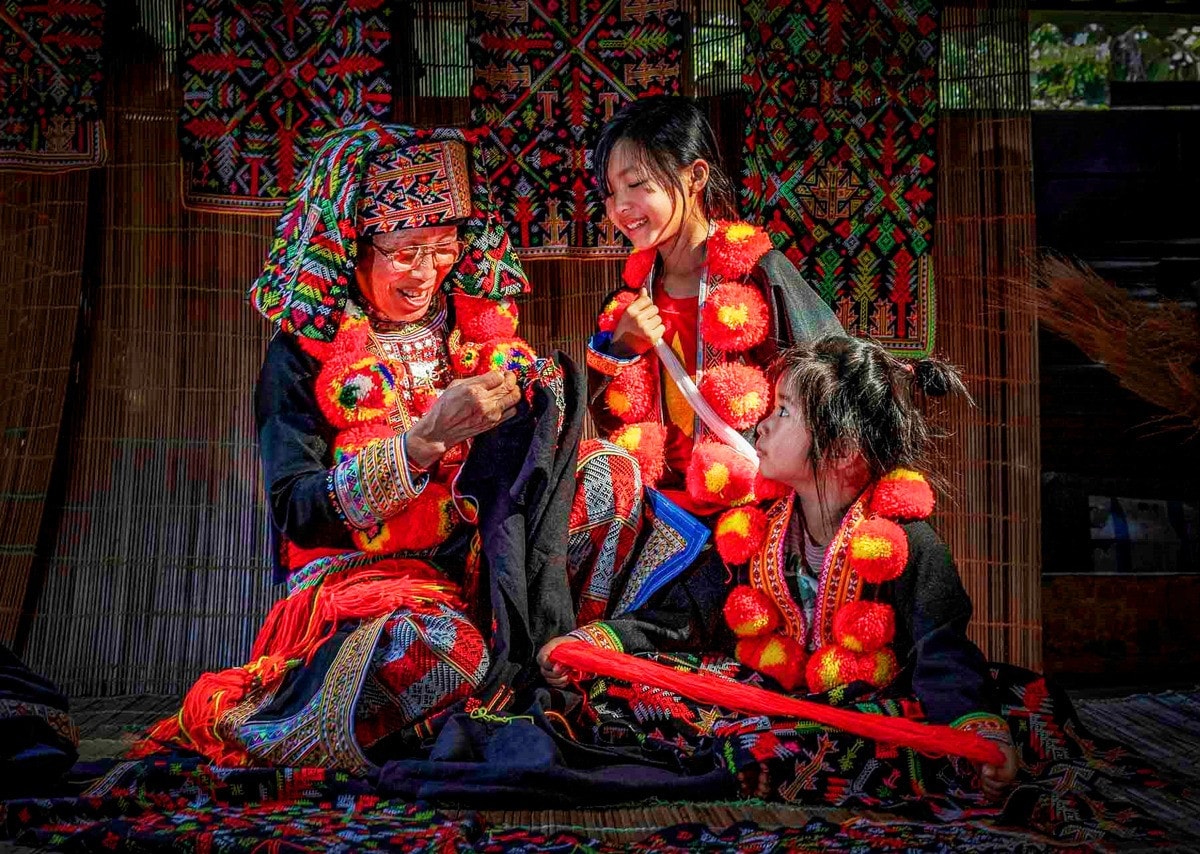Vietnamese Culture: New Pillar for Sustainable Development
The draft Political Report of the 14th National Congress identifies culture as not only the foundation but also the 'regulating system', guiding the harmonious and sustainable development of the country.
The draft Political Report submitted to the 14th National Party Congress has put forward a new position, affirming: "Culture and people are the foundation, resources, endogenous strength and a great driving force, a regulatory system for sustainable social development". This is considered a great step forward in development thinking, elevating culture from a spiritual foundation to an operating mechanism, regulating and orienting the entire national development process.
From spiritual foundation to strategic 'regulatory system'
Throughout history, culture has always been the soul of the nation. However, the position of culture in the national development strategy has never been as high as in this draft. If in the past, culture was mainly seen as a spiritual foundation, now it has been raised to a new level: a regulatory pillar, a "soft brake" that keeps development from deviating from the humanistic orbit, helping the country grow while still maintaining its identity.
This thinking is the inheritance and continuous development in the Party's line. From the 6th Congress (1986) which initiated the renovation, to the Resolution of the 5th Central Committee of the 8th term (1998) which affirmed that culture is "both a goal and a driving force", and through the following Congresses, the role of culture has been increasingly emphasized. In the draft for the 14th Congress, this vision has been expanded, identifying culture as a "regulatory system" of development.
Key role in economics, politics and society
The concept of “regulating system” reflects the profound awareness that culture is the balancing and orienting mechanism. Economics creates wealth, politics creates mechanisms, and culture plays a regulating role, ensuring harmonious development between material and spiritual, between interests and morality.
Culture in economics: Creating sustainable value
The relationship between culture and economics is increasingly close. A cultured economy is one that respects ethics, promotes social responsibility and aims for sustainable values. When businesses value culture, they not only produce goods but also create social value and trust, the fundamental elements of a strong economy.
Culture in Politics: Strengthening Social Trust
For politics, culture is the soul of power, creating legitimacy and vitality of the institution. A cultured political system will know how to listen to and respect the people, putting human interests first. Leadership culture, public service culture and rule of law culture contribute to creating a humane governance, strengthening social trust - the foundation for long-term stability.
Culture in social life: The thread that connects the community
In society, culture is the “glue” that binds people together, honors beauty, promotes morality and protects justice. When culture becomes a way of thinking and behavior, society has the ability to self-regulate, becoming an “immune system” that helps people resist deviations and value crises in the context of globalization.

Soft power and international position of Vietnam
In the context of international integration, culture is the soft power that helps Vietnam affirm its own identity. Values such as compassion, peace, and forgiveness have become spiritual “brands”, helping the country affirm its position in the international community. Culture is the “common language” of peace, the foundation for Vietnam to develop sustainably in a volatile world.
Turn awareness into concrete action
For culture to truly play its role as a “regulatory system,” transforming awareness into action is key. It is necessary to continue to improve institutions and policies to integrate culture into all development strategies, from urban planning, education to technology. Each project needs to be evaluated not only by its economic efficiency but also by its socio-cultural value.
The State needs to invest heavily in high-quality cultural human resources and build a healthy cultural environment where good values are honored. According to Associate Professor Dr. Bui Hoai Son, Standing Member of the National Assembly's Committee on Culture and Education, building a clear legal corridor is very necessary, for example, "there must be a separate law on performing arts" to create a basis for professional and sustainable development.
Identifying culture as a “regulating system” demonstrates the Party’s strategic vision, affirming that Vietnam’s development must be based on the strength of culture and people. When culture permeates all aspects of life, the country will have enough internal strength to enter an era of rapid, sustainable and rich-in-identity development.
